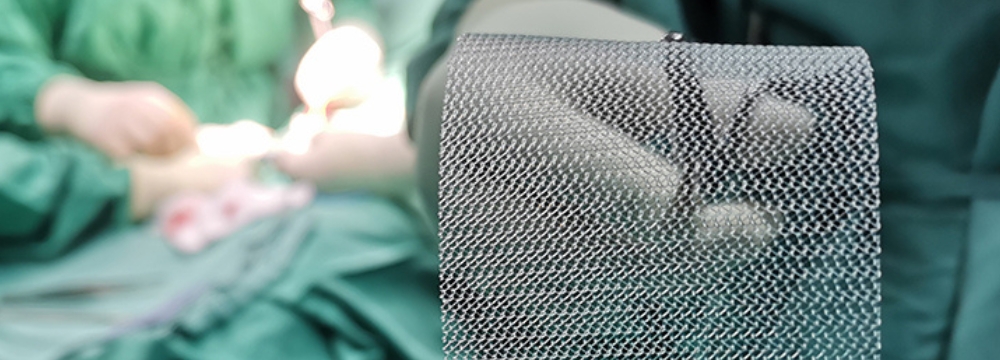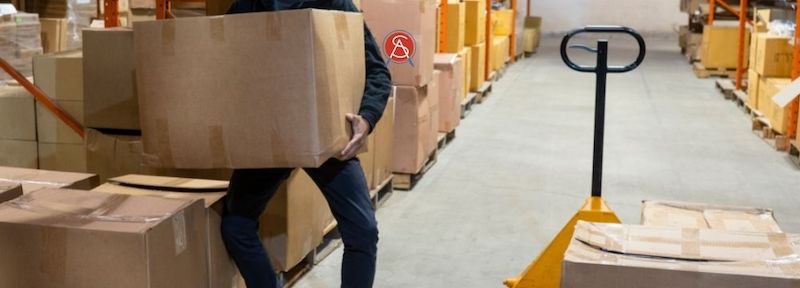
When discussing hernia repair, a few issues are more controversial than hernia mesh. To understand whether hernia mesh is appropriate for your repair, it is essential to understand what exactly it is, how technology has changed over the years, and what the concerns have been about hernia mesh in the past. As you may know, a hernia is a defect in the strong layer of the abdominal lining known as fascia. As this wears down, it can develop a hole, and the contents of the abdomen can begin to push through (intestine, fat, etc.), causing pain and a palpable or visible lump. Hernias in and of themselves are not dangerous, and many patients live their whole lives not even knowing they have one.
However, for those that experience lifestyle impediments or rare emergencies like incarceration or strangulation of the hernia, a surgical repair is necessary. Decades ago, hernias were repaired using a tension method by primarily suturing the hernia defect closed. However, tension repairs have several drawbacks that may result in many patients experiencing a recurrence – where the hernia defect re-opens. This is because the fascia does not repair itself like skin or muscle. It heals with a scar that is never as strong as the unscarred fascia. Further, the tension placed on the sutures can tear this tissue and allow the contents of the hernia to protrude once again.
Hernia Mesh to the Rescue
Hernia mesh was a revolutionary invention. By simply placing a synthetic lattice over the defect, we could promote inflammation and scar tissue formation that, using the mesh as a foundation, could permanently seal the defect. No tension was involved, and the mesh combined with scar tissue was strong enough to reduce recurrences by 80 to 90%. However, hernia meshes came with their downsides. First, prior generation meshes were thick and not particularly customized to differing anatomies, creating the possibility for excess inflammation, curling, or migration that would ultimately lead to chronic pain and potentially a second operation to correct the problem.
How Have We Addressed These Issues?
Modern hernia mesh is thinner, more flexible, and more customized than ever. As experienced hernia surgeons, we have the know-how to choose the proper mesh and perform the operation to reduce the involvement of nerves and musculature. From single large incisions of old, known as open surgery, we now use laparoscopic (minimally invasive) or even robotically assisted surgery in performing hernia repairs. This reduces the recovery time and risk of infection, blood loss, chronic pain, and recurrence.
What about hernia mesh recalls?
A couple of decades ago, there was indeed a recall of hernia mesh. However, it was more nuanced than a defective product. Instead, a counterfeit product had hit the market and looked the same as its genuine counterpart. Out of an abundance of caution, all of this hernia mesh (fake and real) was recalled to restore supply chain quality.
You may have heard of more recent mesh concerns still being advertised on television by law firms. This does not involve the hernia mesh used in our procedures, but pelvic floor mesh for female patients.
So, What’s the Answer?
In short, hernia mesh is the gold standard in repairing a hernia. We have several hernia mesh options, including the workhorse synthetic mesh and biologic (natural tissue) meshes for infected hernia sites. We also have plug-type partially absorbable meshes that combine natural and synthetic meshes leaving behind only a synthetic plug to close the hernia defect. Most importantly, employing a surgical practice like Surgical Association of Mobile that has the experience of thousands of procedures under its belt gives you the best chance of a successful, long-term repair.
Hernia surgery is far safer and more effective today than ever before, and you can expect excellent results if treated appropriately. Waiting too long or until you have an emergency only increases the potential complications after hernia surgery. Be sure to speak to one of our doctors as soon as you have the signs of a hernia.




